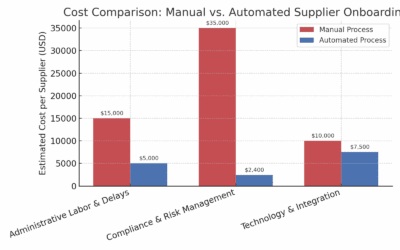Globalization has brought significant benefits to businesses but also difficulties in sharpening their competitive advantages. Across all industries, many organizations have embraced a strategic supplier diversity program to set themselves apart from the competition.
However, to certify or not certify – that’s still a question most suppliers face at some point in the journey of positioning their brand. Is a supplier diversity certification worth it? Why does it matter? Do I have to certify my business? This article will give you answers to these questions.
Diversity Certification for Suppliers, Explained.
A supplier diversity certification is issued when a third-party certification agency verifies, screens, and validates that your business is diverse. This certification proves to buyers that your business meets the inclusion program requirements, increasing opportunities to get into the door that may not be available to non-certified suppliers.
These certifications are vital when partnering with government agencies. Some are mandated by law to source a certain percentage of their supply needs from certified small or diverse-owned businesses.
Type of Diversity Certification for Suppliers
As per definition, a diverse supplier is a business that is at least 51% owned and operated by an individual or group that is part of a traditionally underrepresented or under-served group. Some common classifications include:
- Small Business
- Minority-Owned Business
- Woman-Owned Business
- Veteran-Owned Business
- Disability-Owned Business
- LGBTQ-Owned Business
Does It Really Matter to Buyers?
Today, consumers are getting smarter about knowing what brand aligns with their values, whether it’s supporting small or minority-owned businesses. Hence, supplier diversity matters to buyers. It is a key part of a company’s efforts to keep promises and maintain high ethical and moral standards.
For example, Coca-Cola spends over $800 million annually on diverse suppliers and aims to increase that to more than $1 billion by the end of 2020. As of 2019, the retailer Target, one of our SupplierGateway platform users, increased diverse supplier spend by over 35% (compared with 2017) and spent $1.4 billion on goods and services provided by first-tier diverse suppliers.
Certifications Are Your Marketing Tool, Not Everything You Have
It’s great for your business to have a certification. Yet, it’s not the only thing you should rely upon, especially when pitching to buyers. Certifications don’t guarantee winning new business. Instead, certification should be a marketing tool to help your business be noticed and make the right sales pitch. Leveraging it as a value of trust shows your brand’s promise and what you stand for.
Introducing Enhanced Digital Certification – A New Digital Diversity Certification for Suppliers
Enhanced Digital Certification™ (EDC) is a fast and inexpensive way for small businesses to get certified as a diverse-owned organization while at the same time exposing them to new opportunities afforded by being in the SupplierGateway network.
EDC is gaining widespread acceptance by some of the most prominent advocates of inclusive purchasing, all of whom also seek to create new economic impact at scale. By digitizing and streamlining the diversity certification process, we have made it easier, faster, and much less costly to achieve diversity certification.
If your business is small and minority-owned, EDC is a great program for becoming certified as a diverse-owned business.
Promote Your Business With Certifications
Certifications increase the opportunities for your business to be found and noticed by buyers. For those looking to expand your market presence with prospects, registering a free account with SupplierGateway gives you access to new business opportunities. Our platform connects you with customers of all sizes – from Fortune 500 companies and globally recognized companies to your local health system, manufacturer, or business. Our easy-to-use app will help you stay connected to the opportunities that could make all the difference to your bottom line.












